How Sustainable Farms Improve Soil Health and Crop Yield
My first visit to Michael Thompson’s regenerative farm in Iowa was unforgettable. The soil was rich and dark, telling a story of change. It was a story of hope for our farming future.
Sustainable farms are changing how we farm. They focus on soil health, blending environmental care with food production. Learning about sustainable agriculture opens up new ways to farm that care for the land and people.
Sustainable farms do more than grow crops. They work to heal ecosystems, make crops stronger, and ensure farming lasts for years. Every acre shows how smart, green farming can be.
Key Takeaways
- Sustainable farms restore soil ecosystem balance
- Regenerative techniques increase overall crop productivity
- Environmental conservation is intrinsically linked to agricultural success
- Sustainable agriculture reduces chemical dependency
- Healthy soils create more nutritious food crops
Understanding the Fundamentals of Sustainable Farm Management
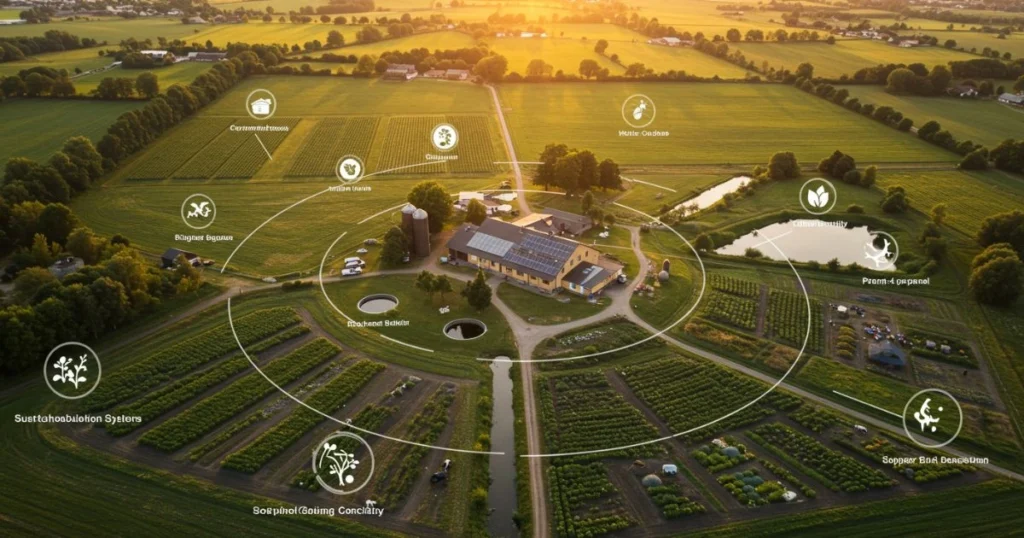
Sustainable farm management is a complete approach to farming. It balances taking care of the environment, making money, and being socially responsible. It’s not just a trend; it’s a must for farms to succeed in the long run.
Today’s farmers know that sustainable farming is key. It keeps farms productive and strong. They use new methods that protect nature.
Key Components of Agricultural Sustainability
The main parts of sustainable farming are:
- Soil conservation and regeneration
- Water resource management
- Biodiversity preservation
- Energy efficiency
- Ecosystem protection
Environmental Impact Assessment in Farming
Knowing your farm’s environmental impact is vital. Environmental impact assessments help find ecological risks and fix them. They look at:
- Greenhouse gas emissions
- Water usage patterns
- Soil health indicators
- Biodiversity metrics
Economic Viability of Sustainable Practices
Sustainable farming is good for the planet and your wallet. It cuts down costs, makes crops stronger, and opens up high-value markets. This leads to big financial gains.
“Sustainability is the key to long-term agricultural success and profitability.” – Dr. Sarah Roberts, Agricultural Economist
The Science Behind Soil Health in Sustainable Agriculture
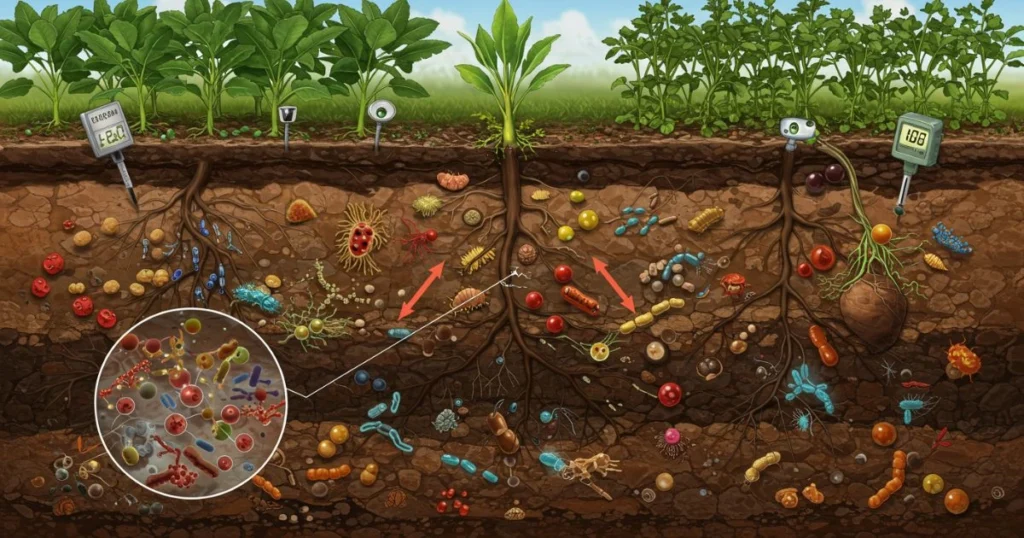
Sustainable agriculture depends on knowing how soil works. The soil beneath us is full of tiny life, nutrients, and organic matter. These things help crops grow well and keep the environment healthy.
Soil microorganisms are key in sustainable farming. They work hard to break down organic matter, release nutrients, and help plants grow. By supporting these natural processes, farmers can make soil better without using harmful chemicals.
- Beneficial bacteria transform nutrients into plant-available forms
- Fungal networks connect plant roots, facilitating nutrient exchange
- Organic matter provides essential food for soil microbes
Seeing soil as a living ecosystem is the first step in understanding agriculture and sustainability. Sustainable farming practices help these underground communities. This supports strong plant growth and stable farming systems.
Healthy soil is the foundation of sustainable agriculture, creating a self-sustaining cycle of nutrition and growth.
Important scientific ideas for soil health include:
- Minimizing soil disturbance
- Maintaining continuous living root systems
- Maximizing biodiversity above and below ground
By using these scientific ideas, farmers can turn agricultural areas into productive, regenerative ecosystems. These ecosystems support food production and protect the environment.
Essential Practices of Sustainable Farms for Soil Enhancement
Sustainable farming is key for healthy soil and better crops. Farmers use special techniques to make their farms strong and lasting. This helps grow food for a long time.
Soil management is more than just farming. A sustainable farm looks after the soil in a big way. It’s all about caring for the earth beneath our feet.
Cover Cropping Techniques
Cover crops are a great way to protect and fix soil. They do many things:
- Stop soil from washing away
- Kill off weeds
- Make soil better
- Help nutrients move around
“Healthy soil is the foundation of sustainable agriculture” – Dr. Sarah Johnson, Soil Ecology Expert
Crop Rotation Strategies
Crop rotation is a key part of sustainable farming. It means changing crops in the same field. This does many good things:
- Breaks pest and disease cycles
- Reduces need for chemicals
- Keeps soil rich
- Increases crop yield
Organic Matter Management
Handling organic matter is vital for a sustainable farm. Composting and adding plant and animal waste boosts soil health. It makes soil full of life and nutrients.
By using these soil care methods, farmers can make their farms better. They become strong and productive. This helps the environment and the farm’s economy too.
Natural Fertilization Methods for Optimal Crop Production
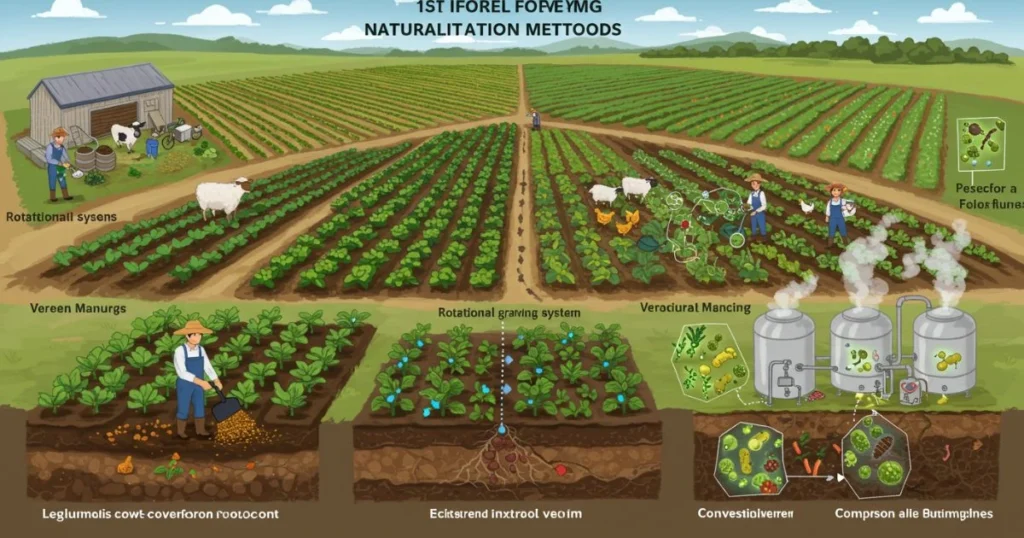
Sustainable agriculture uses natural ways to feed crops and keep soil healthy. Learning these methods can change how you farm. It makes farming more productive and good for the environment.
Natural fertilizers are great for growing crops. They work well with nature, giving plants what they need without harming the environment. Using these methods helps improve soil and supports farming for a long time.
- Compost application provides a rich, organic nutrient source
- Green manure techniques improve soil fertility naturally
- Organic fertilizers support beneficial microbial activity
Farmers can make their own natural fertilizers in several ways:
- Organic compost creation from agricultural waste
- Implementing cover crops that add nutrients to the soil
- Using animal manure as a nutrient-rich fertilizer
The main aim of sustainable agriculture is to manage nutrients well. This protects crops and the environment. By using natural fertilizers, you can cut down on chemicals and keep farming quality high.
Natural fertilization represents the future of intelligent, ecosystem-friendly farming practices.
Your farm can get better by using these new ways. It will have better soil, stronger crops, and a balanced ecosystem. Sustainable agriculture is more than a method. It’s a way to produce food responsibly.
Water Conservation and Management in Sustainable Agriculture
Water is key for sustainable farms, essential for growth. Good water management is vital for farming today. It helps farmers use resources well and protect water.
Sustainable farming needs new ways to save water. Your farm’s success depends on smart water use. This balances what crops need with keeping the environment safe.
Efficient Irrigation Systems
Modern farms use new irrigation tech to save water:
- Drip irrigation systems that deliver water directly to plant roots
- Precision sprinkler technologies with moisture sensors
- Automated scheduling based on real-time crop requirements
Rainwater Harvesting Methods
Catching and storing rainwater is a big help for farms. Important steps include:
- Installing large collection tanks
- Creating landscape contours for water retention
- Developing underground cistern systems
Drought Resistance Strategies
Keeping crops safe when water is scarce needs planning. Drought-resistant crop selection and soil care help a lot.
- Selecting native plant varieties
- Implementing mulching techniques
- Developing thorough water retention strategies
Using these water-saving methods, farms can be strong even when it’s hard. They can grow well in tough conditions.
Implementing Integrated Pest Management for Crop Protection
Sustainable farming gives farmers strong ways to protect crops and reduce harm to the environment. Integrated Pest Management (IPM) is a detailed method for crop protection. It goes beyond old ways of fighting pests.
At the heart of IPM, farmers use a layered plan to control pests. This plan includes:
- Regular pest population monitoring
- Biological control methods
- Cultural pest prevention techniques
- Targeted chemical interventions
The success of IPM depends on knowing pest ecosystems. Farmers learn about pest behaviors and how they interact with their environment. Observation becomes the first line of defense in protecting crop health.
Beneficial insects are key in sustainable farming. Farmers attract these insects by creating diverse habitats. This supports ecological balance. Strategies include:
- Planting flower strips to attract beneficial insects
- Maintaining hedge rows around crop fields
- Reducing broad-spectrum pesticide usage
Chemical treatments are a last choice in sustainable farming. When needed, farmers pick targeted treatments. This method protects crops and keeps natural biodiversity.
Measuring and Monitoring Soil Health Indicators
Tracking soil health is key to sustainable farming. Your farm’s success depends on knowing the soil’s details. Regular checks give you insights into your efforts, helping you make better decisions.
Soil assessment involves many methods to show the soil’s complex ecosystem. By using strategic tests, you can understand your soil’s unique traits.
Soil Testing Protocols
Soil testing is vital for checking key sustainability indicators. These tests usually include:
- Nutrient content analysis
- pH level measurement
- Organic matter composition testing
- Mineral and trace element screening
Biological Activity Assessment
Knowing your soil’s living parts is essential for sustainable farming. Biological tests measure:
- Microbial population diversity
- Earthworm population counts
- Beneficial microorganism presence
- Organic decomposition rates
Physical Structure Analysis
Soil physical properties tell you about its health and productivity. Important methods include:
- Aggregate stability testing
- Water infiltration rate measurement
- Soil compaction evaluation
- Texture and structure analysis
Regular monitoring makes your farming proactive, allowing for precise actions to improve soil health and crop yield.
Technology and Innovation in Modern Sustainable Farming
Sustainable farms are seeing a big change thanks to new technology. This change is making farming better for the planet. It helps farmers use their land and resources wisely.
Precision agriculture is a big deal in farming today. It uses the latest tech to make farms more efficient. Some key tools include:
- GPS-enabled crop mapping systems
- Drone-based crop monitoring
- AI-powered decision support platforms
- Smart irrigation controllers
Data analytics are key in sustainable farming. They use sensors and software to track soil and crop health. This helps farmers make better choices, cutting down on waste.
Artificial intelligence is changing farming for the better. It uses data to predict problems and help farmers plan better. These tools make farming more precise, efficient, and green.
Technology isn’t just changing farming—it’s creating a more sustainable future for agricultural production.
By using these new technologies, you can make your farm better. It will be more productive and sustainable, ready for today’s farming challenges.
Conclusion
Sustainable agriculture is a new way of farming that goes beyond old methods. You’ve seen how important it is to manage farms in a holistic way. By using cover crops, managing pests, and checking soil health, you can grow more food and protect the planet.
This article showed that sustainable farming is good for the planet and your wallet. Your farm can handle climate changes better, use fewer chemicals, and keep soil healthy for years. New tech and data help farmers make better choices for both their crops and the environment.
Starting sustainable farming takes dedication and a willingness to learn. Every choice you make, like saving water or using natural fertilizers, helps the whole farm. Your work is key to making farms that can feed more people without harming the environment.
The future of farming is about understanding the links between soil, crops, water, and wildlife. By following sustainable farming, you’re not just growing food. You’re taking care of a whole ecosystem that can last for many years.

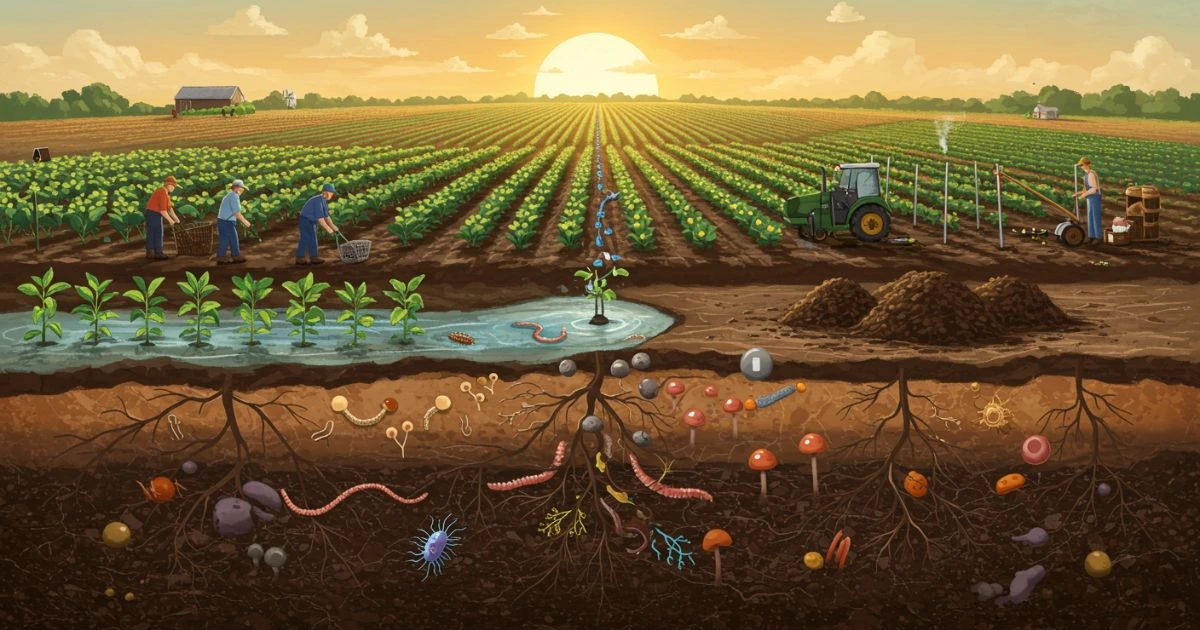
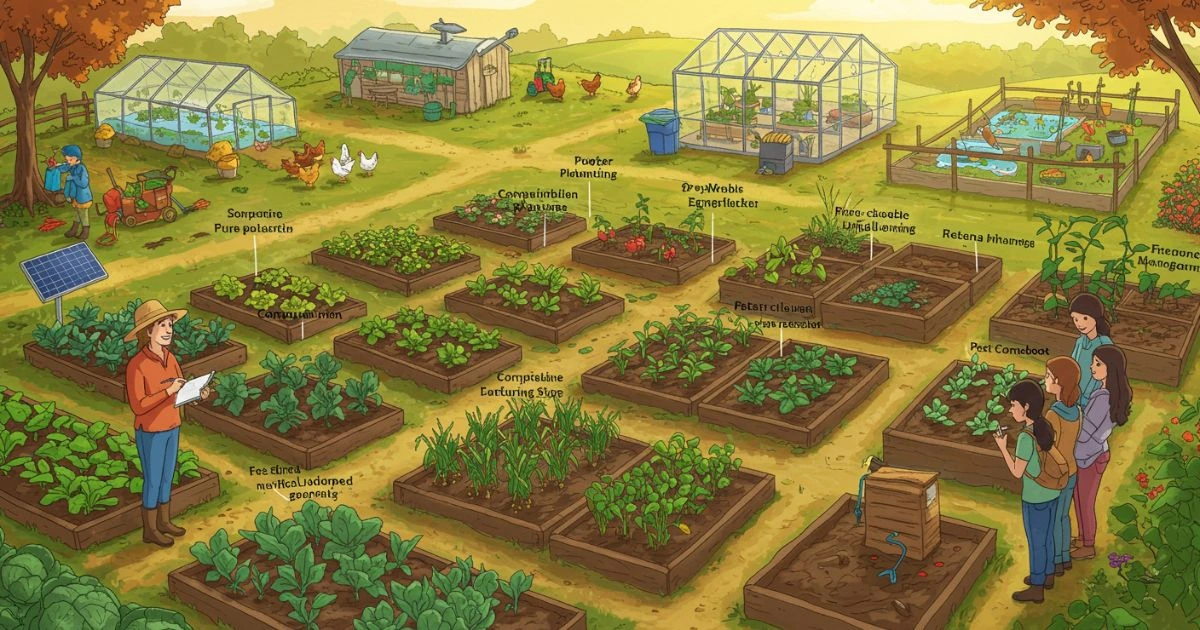
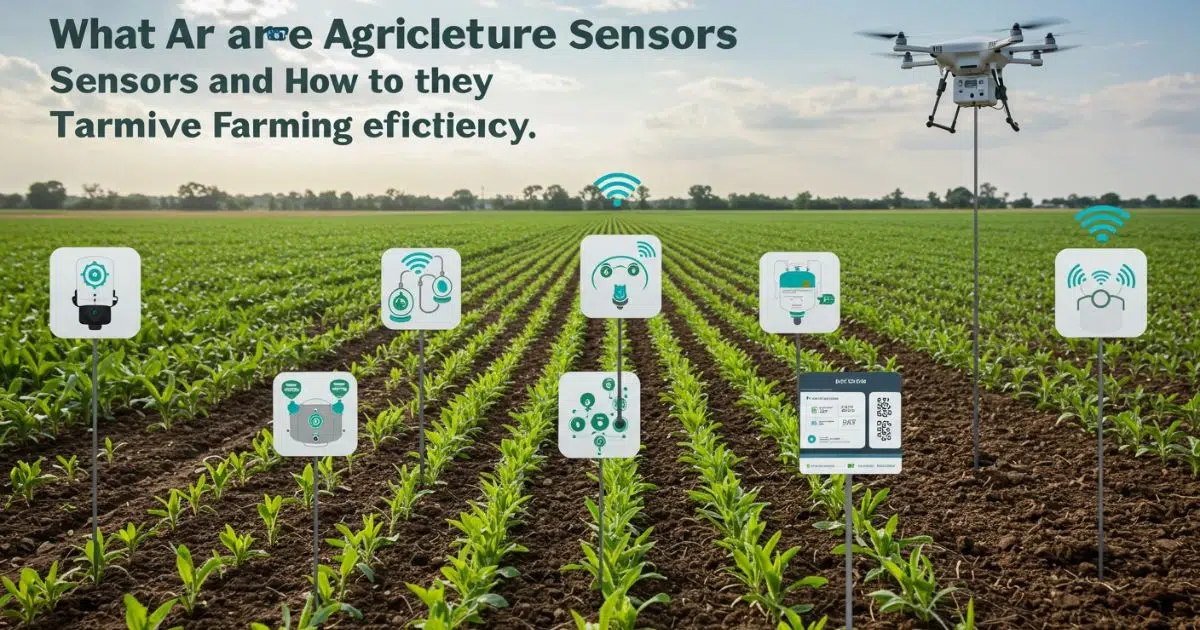
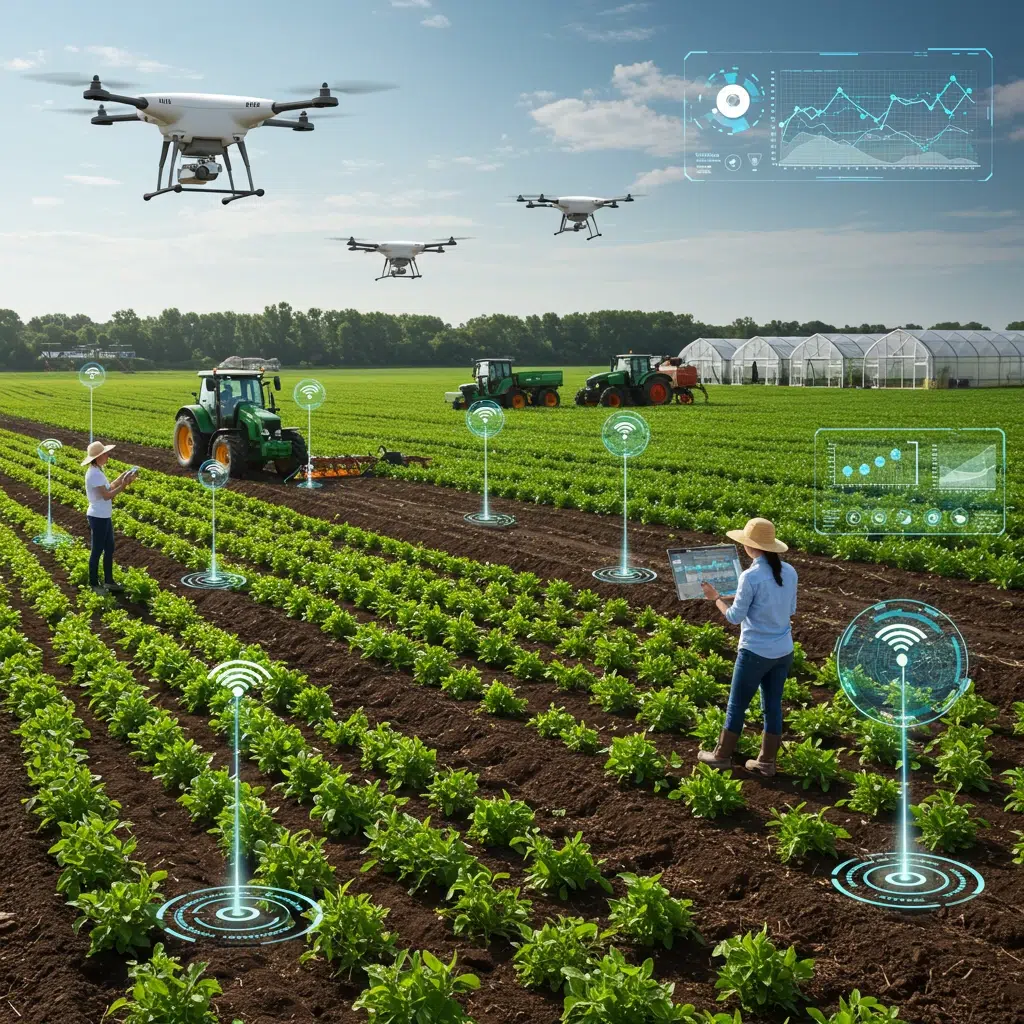
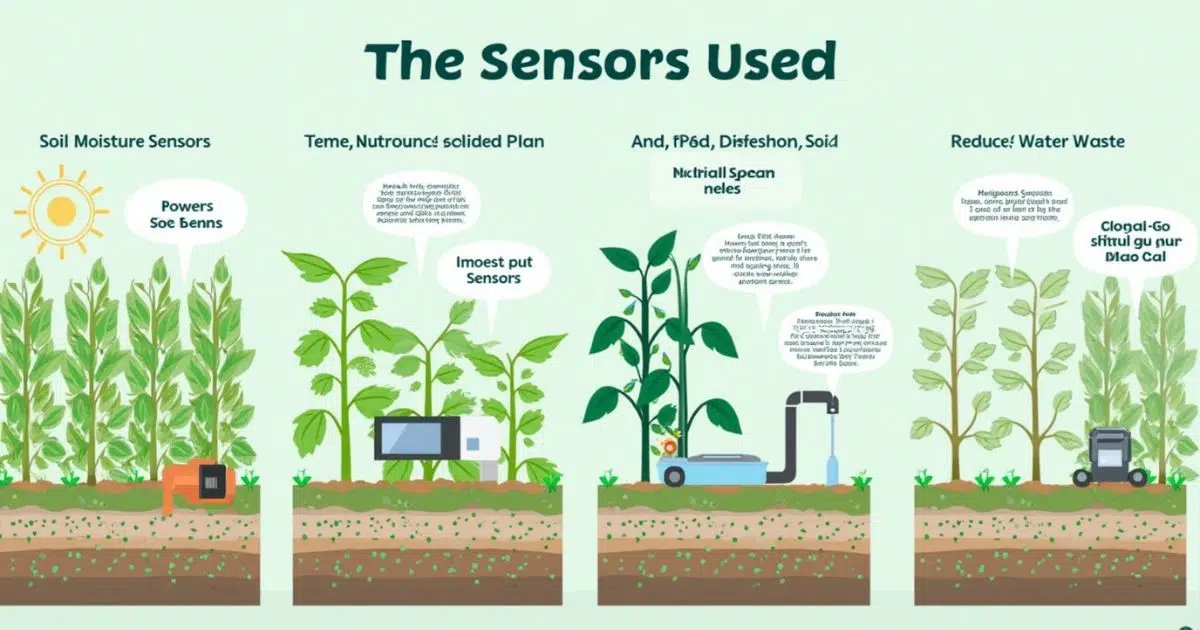
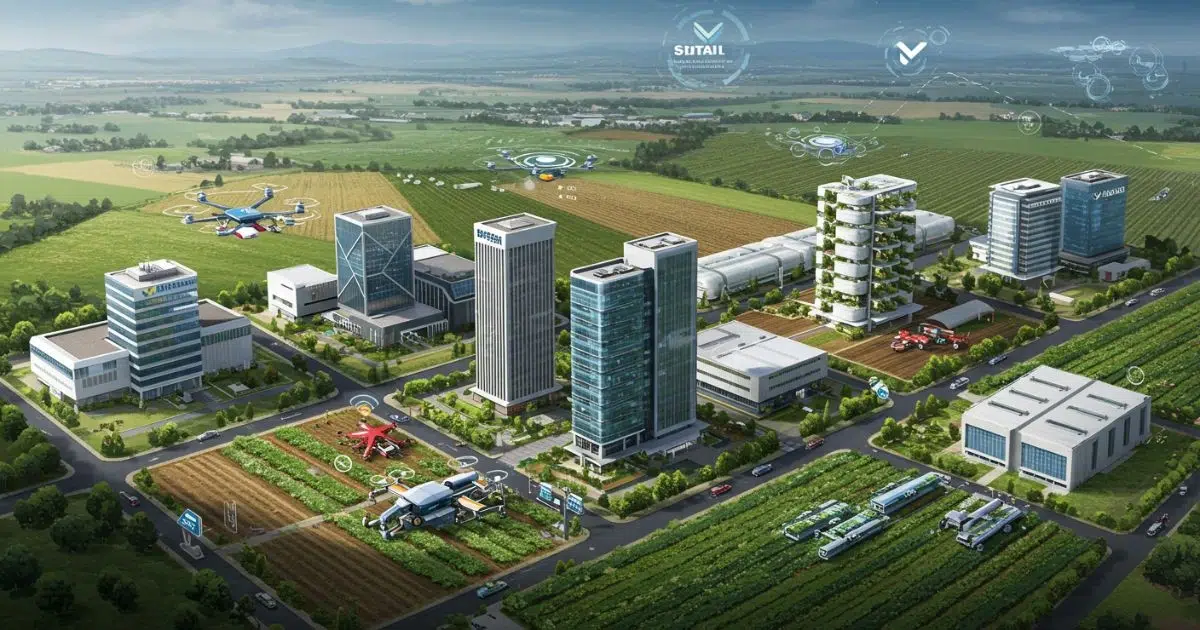
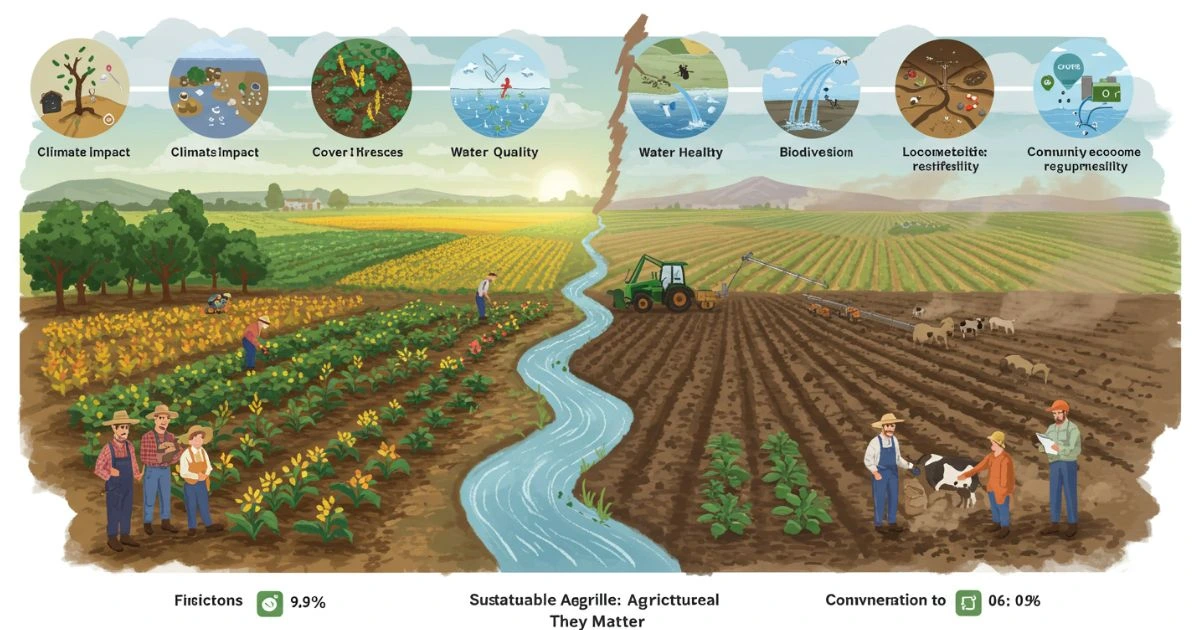
Leave a Reply